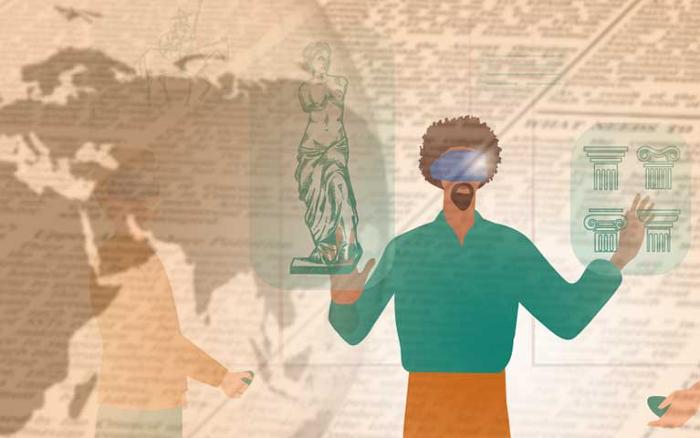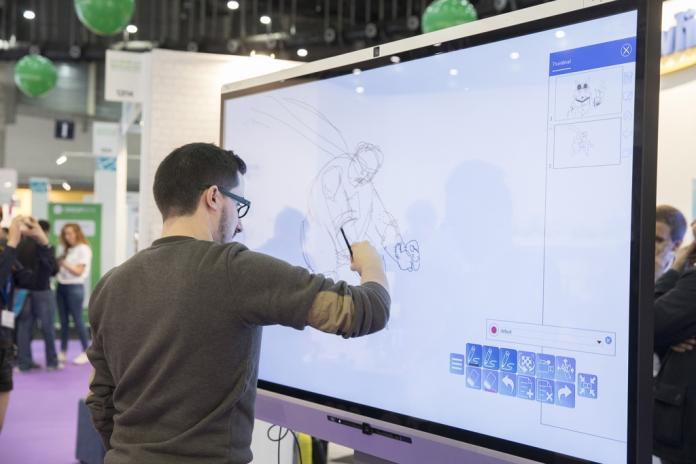

Vocational training in the spotlight at SIMO EDUCACIÓN 2018


The learning technology trade fair is promoting content focused on innovative methodologies, ideas, workshops and experiences aimed at highlighting the extensive opportunities offered within the field of vocational training
Organised by IFEMA, SIMO EDUCACIÓN will take place from 13 to 15 November in Hall 14.1 at Feria de Madrid
From 13 to 15 November, the activities and events offered within the framework of SIMO EDUCACIÓN 2018 will again focus on technological tools and solutions for educational innovation at all levels of learning. From compulsory education to specialised university studies, this year will see an even bigger emphasis on innovative methodologies and solutions aimed at highlighting the extensive opportunities on offer in the field of vocational training.
Aula ETHAZI
The Challenge-Based Collaborative Learning model developed by the Basque Country Regional Government’s vocational training department revolutionises the design of vocational training classrooms. The Aula ETHAZI classroom (High Performance Courses), geared toward training people for the future, is based on teamwork, communication skills, leadership, creativity, innovative thinking and emotional intelligence, in response to the new educational context for vocational training.
At SIMO EDUCACIÓN, the Aula ETHAZI will recreate 5 of the 6 spaces included in the model for change, focused respectively on Information, Analysis, Creativity, Construction and Play (the model also includes a sixth space devoted to Workshops). Attendees will also have the opportunity to enjoy five 30-minute presentations on Designing and adapting classroom spaces for new educational models, Challenge-based collaborative learning, Skills audits for development, STEAM in Basque Country vocational training, and implementation of the ETHAZI model in Basque Country vocational training.
In the same vein, and within the framework of SIMO EDUCACIÓN’s programme of activities, Agustin Agirre Andonegi, Director of Research in Learning Methods and Processes at TKNIKA, will explain their project in the seminar ‘The why and the how of methodological change in Basque Country vocational training’, looking at the context, key elements, tools and initiatives that are under development to boost methodological change in the regional vocational training system.
Directorate-General for Scholarships and Grants at the Regional Ministry of Education and Research of the Community of Madrid
The afternoon of Wednesday 14 November will include a presentation on training activities for teachers of professional groups in vocational training from Las Acacias Regional Centre for Innovation and Training, a training centre attached to the Directorate-General for Scholarships and Grants at the Regional Ministry of Education and Research of the Community of Madrid. The main aim of this training is to update the scientific, technical and pedagogical knowledge of teaching staff within the official vocational training scheme in the Community of Madrid.
Fundación ATRESMEDIA and Fundación Mapfre
With the aim of promoting vocational training to all attendees at this year’s SIMO EDUCACIÓN, the ATRESMEDIA Foundation (stand A01) and the Mapfre Foundation will offer detailed information on the ‘Discovering VT’ project, explaining their activities for boosting vocational training and showing the extensive opportunities in this educational field, which already includes more than 800,000 students in Spain. The stand has a special photo booth where people can support the campaign #YoCreoEnLaFP (‘I believe in VT’), which the Foundation is rolling out across social media and which already has the support of many well-known personalities, including Susanna Griso, Frank Blanco, Cristina Pedroche, Miguel Ríos, Mónica Carrillo and Jorge Lorenzo.
Maker experiences, workshops and activities for vocational training
There are also activities specially focused on vocational training in the SIMO EDUCACIÓN programme. These include the workshop on Cooperative learning for flexible teams in vocational training, offered by Patricia M. Santos Campos, trainer in vocational training and career guidance, and Legal Adviser at the Malaga Department of Education, which is focused on fostering optimal performance and efficiency from students in resolving challenges.
This learning strategy aims to train students by encouraging autonomy in the resolution of challenges and projects, helping learners develop the skills of self-organisation and self-management. This stems from students’ confidence in their abilities gained through working in teams, and promotes reflection, the culture of ongoing improvement and the appreciation of mistakes as learning opportunities, and fosters interpersonal and intrapersonal skills.
Bárbara Álvarez Manzano, vocational training teacher and adviser, will present her service-learning experience, Basic computing workshop for migrants, which consists in a training scheme covering basic computer skills and Internet use, taught by basic-level vocational training students in ICT to migrants and refugees from CEAR (the Spanish Commission for Aid for Refugees).
The Makers area at SIMO EDUCACIÓN will also offer activities geared toward the field of vocational training, including three workshops organised by the JOSÉ RAMÓN OTERO VT CENTRE and its students, on the morning of Thursday 15 November.
The first of these will demonstrate the assembly of an integrated circuit from a hydroelectric power plant, using household materials, to enable identification of the different parts of a hydroelectric power plant.
The second workshop, entitled ‘Vehicle structure, deforming and reforming bodywork’, will analyse the types of damage incurred by vehicles and the forces involved, as well as ideas for their repair. For this workshop, students will use a model of a vehicle repair bench and a car structure made with a metal rod, causing damage and deformation through simulated collisions.
The third workshop, LED display with Bluetooth, will show how, via a mobile phone, we can control text appearing on an LED screen using Bluetooth to communicate between the screen and the mobile phone and a circuit using Arduino for data input and output.



